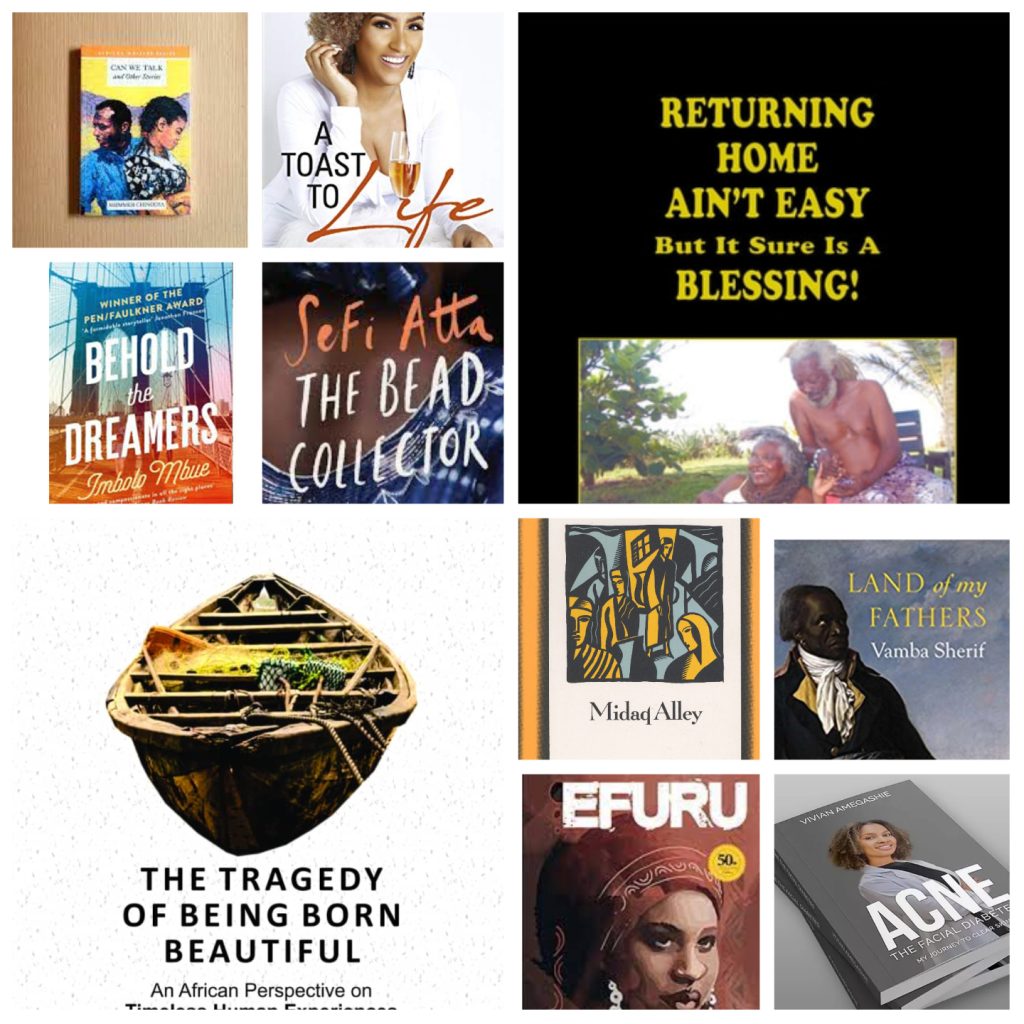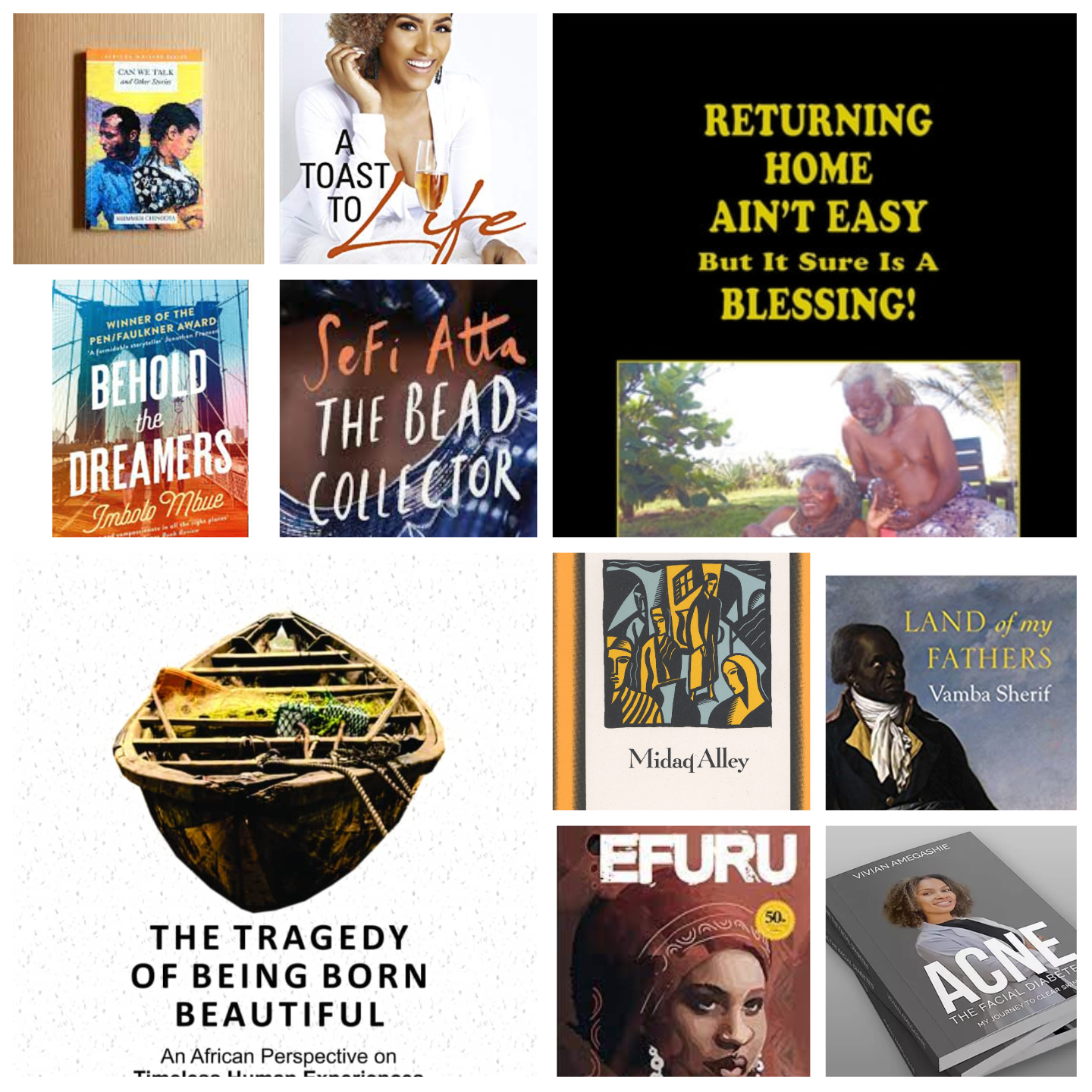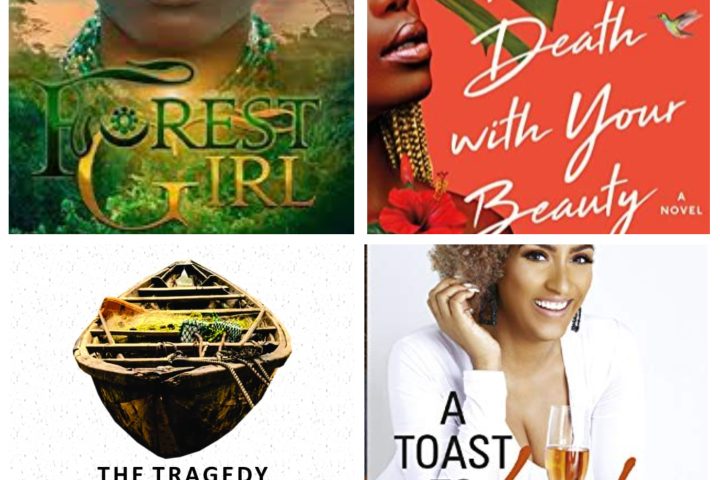From the 24th of December which is the eve of Christmas to the day after the New Year which is 2nd January, a whole lot of people around the world and in Africa will be taking time off their hectic daily activities to relax , most cities will turn to ghost towns including Lagos the most populous city in Africa with its over 20 Million population, as most of its residents will return to their home states and neighbouring nations and beyond to celebrate the Christmas season with friends and family, leaving its streets notorious for frustrating traffic jam empty, till the early weeks of January.
The holidays will usher in a more relaxing atmosphere throughout the period, though there will be lots of events and activities to attend, some people might not feel the need for outdoor activities and will use the time to stay indoor and have some ‘me’ time after an 11 and half months stretch of hustle and bustle. seeking out subtle entertaining programs on their television and possibly snuggle up with books.
if you happen to be in that category we propose to you 10 amazing books for 10 days of Christmas that can help lighten your mood this season or even inspire you to make amazing changes to your perspectives about life and help you cope better in the coming year. Fiction and non fiction works selected across diverse themes based on the human emotional and social need and also just for self entertainment from the 6 regions of Africa.
- Can we Talk and Other Stories- Shimmer Chinodya
Fiction /Relationship
Can We Talk is a collection of Zimbabwean stories following the transition from childhood to adult life. Youthful desires for prosperity, love and a purpose in life are undermined for Chinodya’s characters as they grow up. The disappointments they face reflect a wider disillusionment and decline in post-independence Zimbabwe. In the final story, “Can We Talk”, cynicism turns to anger at the breakdown of a marriage. Can We Talk as the lead story in the collection is a couple’s challenge with the complication of communication as their marriage aims for the rocks, and how a simple thing as a heart to heart talk can ease and untangle the knots and emotions that suffocates relationship till its untimely end.
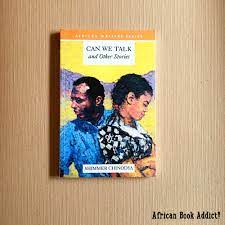
- A Toast to Life – Juliet Ibrahim
Memoir
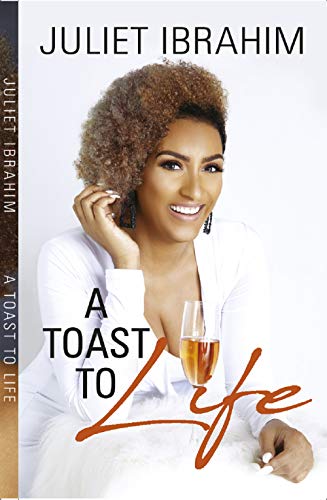
A Toast to Life is a chronicle of events in the life of Juliet Ibrahim a renowned Ghanaian actress, film producer, singer and humanitarian of Lebanese, Ghanaian and Liberian descent. Juliet Ibrahim’s launch into the celebrity world started with a modeling career as a runway and editorial model; modeling for the big designers brands in Ghana and Ivory Coast.
A Toast to Life is best described with one phrase “brutally honest’ as her memoir narrated the challenges of relationship, a teen’s struggle with her body and self, attention and lust of the opposite sex as well as un-weaving a web of intricacies on sexual abuse, and gender based violence.
Excerpt from www.naijabookbae.com review of A Toast to Life reads thus “celebrities are mere human beings, which is what the memoir succeeded in doing, painting her as a normal human being, who just happens to be in the entertainment industry.”
“ The book talks about the things that have happened to her, from the beautiful to the ugly, especially by humans, and it’s awesome how steadfast she has been able to be all her life and how she lets nothing deter her, instead she trudges forward. It is very motivating.
“Ultimately this memoir succeeds in showing the humanity in Juliet Ibrahim, who isn’t just a face behind the screen, she is also a human, who goes through the motions of living and struggle that comes with being a human female, no matter her status.
3.Efuru- Flora Nwapa
Paradigm shift
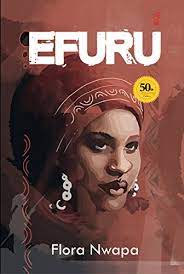
Efuru is one of the foremost literature that aimed at changing the narrative on African women, from the prism of domestication as mere home keepers and child bearers as being portrayed in stories of most male writers who dominated the creative writing profession during the colonial era of Sub Saharan Africa. Its a narrative about a woman who empowers herself enough to financially support her husband and her father. Efuru, the protagonist, breaks anti-feminist stereotypes of traditional African society by showing she has a mind of her own. She makes some crucial decisions in her life based on what she feels is right for her, rather than bow to the demands of others.
The novel Efuru established Nigerian author Flora Nwapa as the first African woman to publish a book in English. Her work set the stage for the emergence of female writers in Nigeria and other African countries.
Flora Nwapa an Igbo woman from the south east of Nigeria is widely considered the mother of African literature because she was the first female writer on the continent to have her works widely published. Her most enduring legacy is the birth of contemporary female writers who are replicating the themes of her novels in an effort to change the negative narrative of the African woman in a male-dominated literature space.
- Returning Home Aint Easy But It Sure Is A Blessing- Seestah Imahkus Njinga Ababio
Non Fiction/Migration
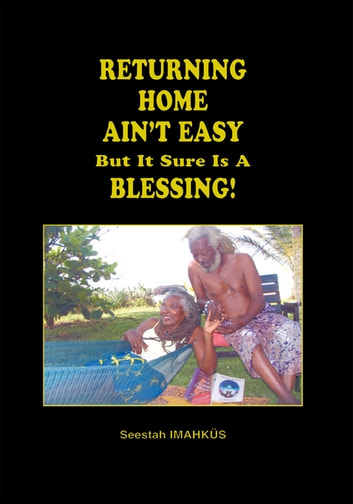
Returning Home Aint Easy But it Sure Is A Blessing is a very moving and penetrating work that every African whether he or she intends on repatriating to Africa or not, should read. It is an invaluable guide to all Africans who are desperately trying to make their way back home. To re-locate is not a simple matter. It requires a determination to succeed, a firm faith in God the Almighty and patience to learn and re-learn.
The power of this book prepares a plan for those wanting to return home to re-acquaint themselves with the land of their Afrikan ancestors. This book shows wisdom, extreme sensibility, and sense of humor necessary to help one to re-settle and make their home in Ghana or anywhere in Africa for that matter. The discourse also includes Ghanaian law as it relates to the subject of Dual Citizenship and The Right of Abode for Afrikans born in the Diaspora.
This book can help those who may choose to walk the path of Return, but should also be read by those who do not intend to re-locate as it is a book, which imparts valuable information about a country in Africa, one of the countries that many African-Americans repatriate to Ghana. Seestah Imahkus Njinga’s straightforward choice of words makes for an admirable, enjoyable, serious and commendable read.
5 Acne the Facial Diabetes Vivian Amegashie
Self Care
Acne The Facial Diabetes
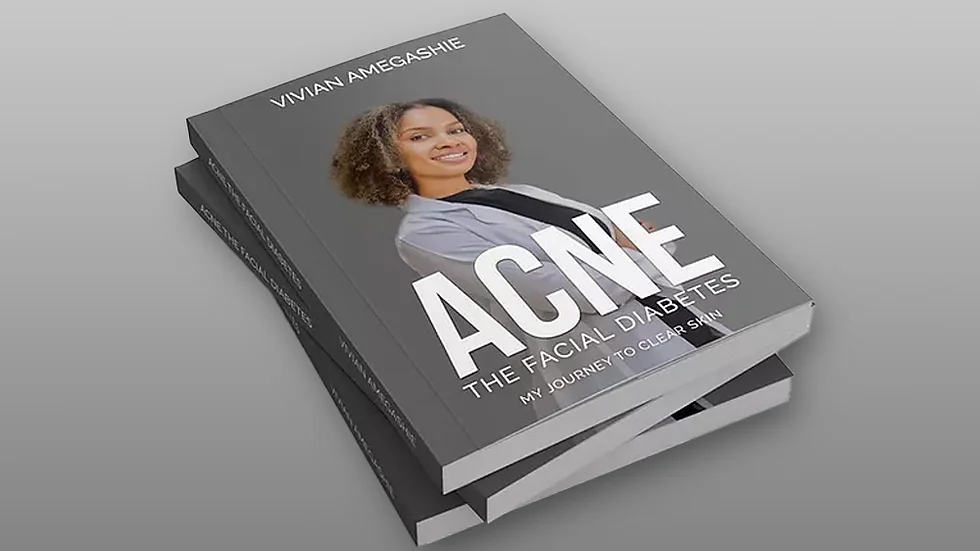
If You’re suffering from acne with little to no improvement or got a body acne that won’t go away or a hormonal acne, then this book is for you.
Vivian Amegashie is a mother, sister, and friend to many, who knows what it feels like living with acne. Having grown up with flawless skin and eating anything, she experienced debilitating breakouts of hormonal acne, IBS, and declining health herself, culminating in early menopausal symptoms.
On her own personal journey to clear skin, Vivian studied nutrition and skincare. Few skincare therapists will combine skincare and nutrition for a holistic regime, but Vivian has led women on a journey to clearer skin, better health, regained confidence, and a healthier lifestyle.
Her Clear Skin Protocols have improved not only acne but other health concerns like IBS and GERD, and even reversed the early onset of menopause. This book contains the distilled summary of a decade worth of research, trials, and errors.
6. The Bead Collector -Sefi Atta
Cross Cultural relationship
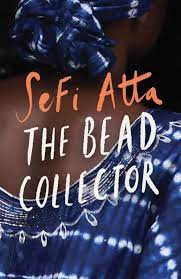
The Bead Collector, by Seffi Atta is a work that masterfully connects the relationship between a Nigerian and an American woman, Remi Lawal and Frances Cooke, to the larger dynamics of instability and uncertainty that trail Nigeria’s insertion into the global community. The international espionage tale began by bringing the intrigue and politics of family life to the fore.
Lagos, January 1976, six years after the Nigerian Civil War. A new military regime has been in power for six months, but rumors are spreading that a countercoup is imminent. At an art exhibition in the affluent Ikoyi neighborhood, Remi Lawal, a Nigerian woman who runs her own greeting-card shop, meets Frances Cooke, who introduces herself as an American art dealer, in Nigeria to buy rare beads. They become friends and over the next few weeks confide in each other about their aspirations, loyalties, marriage, motherhood—and Nigeria itself, as hospitable Remi welcomes the enigmatic Frances into her world. Remi’s husband, Tunde, naturally suspects Frances—like any American in Lagos—of gathering intelligence for the CIA, yet she is unconvinced.
Cynical about the country’s unending instability, and alienated by the shallowness of the city’s elite, she willingly shares her views with Frances. But the February 13 assassination of General Muhammed prompts Remi to reconsider one particular conversation with her new acquaintance in a different light. Her discouragement overcome by a reawakened sense of patriotism, she begins to doubt that the bead collector is who she claims to be. With her signature subtlety and wit, Sefi Atta examines a brief but profound friendship, and one Nigerian mother’s yearning—amid legacies of conflict and uncertainty—to help build her country from home.
7. Land of my Fathers – Vamba Sheriff
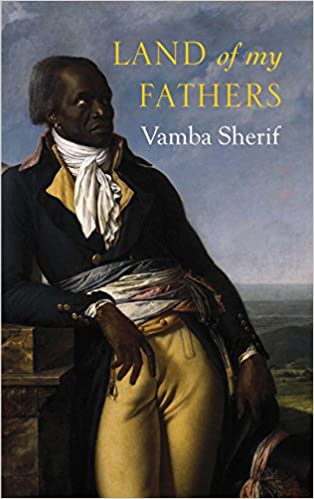
The proud Republic of Liberia was founded in the 19th century with the triumphant return of the freed slaves from America to Africa. Once back ‘home’, however, these AmericoLiberians had to integrate with the resident tribes – who did not want or welcome them. Against a background of French and British colonialists busily carving up Mother Africa, while local tribes were still unashamedly trading in slaves . . . the vulnerable newcomers felt trapped and out of place.
Where men should have stood shoulder to shoulder, they turned on each other instead. THE LAND OF MY FATHERS plunges us into this world. But in the midst of turmoil, there is friendship. Edward Richard, a man born into slavery and a preacher by profession, is convinced that the future of Liberia lies in bringing peace amongst the tribes. His mission takes him to the far north, where he meets an extraordinary man, Halay. Edward’s new and dearest friend is ready to sacrifice his own life to protect his country; for the Liberians believe that with Halay’s death, no war will ever threaten their land. A century later, this belief is crushed when war engulfs the land, bearing away with it the descendants of both Edward and Halay.
Vamba Sherif was born in Kolahun, Liberia in 1973. In his early teens he moved to Kuwait, where he completed secondary school. The First Gulf War compelled him to leave Kuwait and settle in Damascus, Syria, and then in The Netherlands, where he read Law. Vamba is also a journalist and film critic and lives in the Netherlands. He writes in Dutch and English.
8.Midaq Alley- Naguib Mahfouz
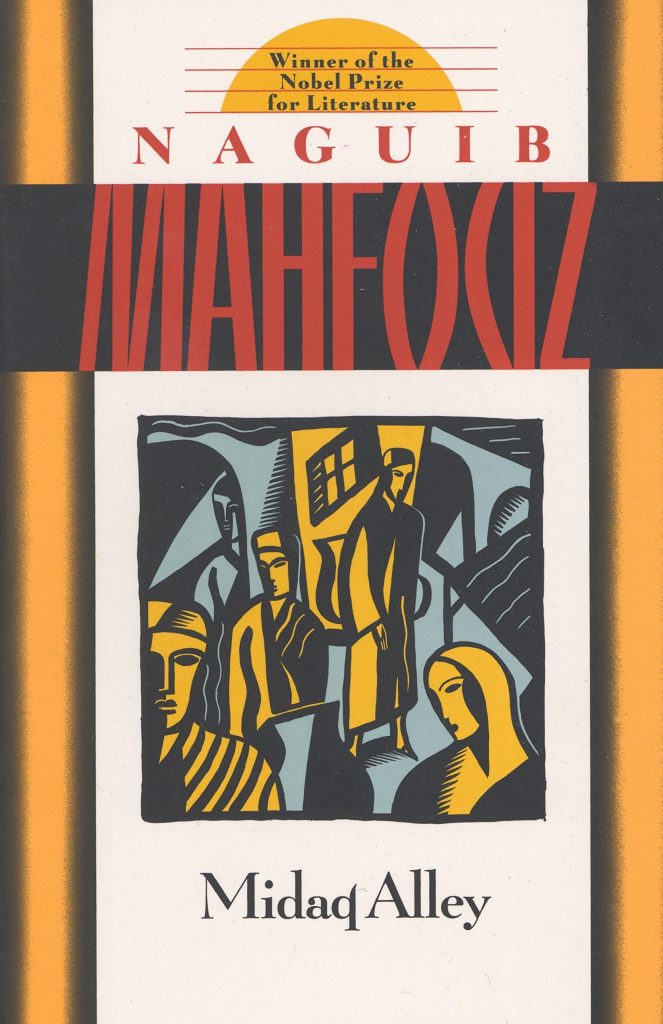
Midaq Alley is a 1947 novel by Egyptian author Naguib Mahfouz, first published in English in 1966. The story is about Midaq Alley in Khan el-Khalili, a teeming back street in Cairo which is presented as a microcosm of the world.
Mahfouz plays on the cultural setting. The novel is introduced with description of the Arab culture. It centers around the list of characters described below. The novel takes place in the 1940s and represents standing on the threshold of a modern era in Cairo and the rest of the nation as a whole.
In the literary work each character is expressed like a caricature in which one quality or trait is over-emphasized. Mahfouz is not satirizing the individual character – he is satirizing the character type.
The theme of “Midaq Alley” cuts to the heart of Arab society. Namely, it shows how a group of characters living in the same slum neighborhood responds to the combined promise and threat of Western-influenced modernization. The opening sentences of “Midaq Alley” points to a world bypassed by history:
“Many things combine to show that Midaq Alley is one of the gems of times gone by and that it once shone forth like a flashing star in the history of Cairo. Which Cairo do I mean? That of the Fatimids, the Mamlukes or the Sultans? Only God and the archaeologists know the answer to that, but in any case, the alley is certainly an ancient relic and a precious one. How could it be otherwise with its stone-paved surface leading directly to the historic Sanadiqiya Street. And then there is its coffeeshop known as ‘Kirsha’s.’ Its walls decorated with multicolored arabesques, now crumbling, give off strong odors from the medicines of olden times, smells which have now become the spices and folk-cures of today and tomorrow . . .”
But all is not as it seems. In short order, we are plunged into the reality of Kirsha’s coffeeshop, where antiquity is being assaulted in all directions. When a “senile old man” begins to play his two-stringed fiddle in accompaniment to a “prayer for the prophet,” he is shouted down by the proprietor: “Are you going to force your recitations on us? That’s the end — the end! Didn’t I warn you last week?”
Kirsha tells the old poet-singer that he has been bypassed by history. “We know all the stories you tell by heart and we don’t need to run through them again. People today don’t want a poet. They keep asking me for a radio and there’s one over there being installed now. So go away and leave us alone and may God provide for you . . .”
Of all the people in the neighborhood who are yearning for an escape from tradition and the poverty that seems to be its permanent handmaiden, none stands out more than the young and beautiful Hamida who is the novel’s central character. Living with her adoptive mother, the matchmaker Umm Hamida, she sneers at the prospective husbands who would be the ostensible pathway toward a more prosperous future. They are all “nonentities.”
The young Hamida envies women who have broken free of traditional bonds, especially the Jewish factory girls. She tells her mother, “If you had seen the factory girls! You should just see those Jewish girls who go to work. They all go about in nice clothes. Well, what is the point of life then if we can’t wear what we want?”
9. Behold the Dreamers Imbolo Mbue
Behold the Dreamers is the 2016 debut novel by Imbolo Mbue.The novel details the experiences of two New York City families during the 2008 financial crisis: an immigrant family from Cameroon, the Jonga family, and their wealthy employers, the Edwards family.
The novel opens in fall 2007 with the interview of an immigrant from Cameroon, Jende Jonga, who is hoping to be hired as a chauffeur for Clark Edwards, a Lehman Brothers executive. Jonga’s job allows him to pay his wife’s college tuition and send money back home until the bankruptcy of Lehman Brothers threatens both families. Jende Jonga is also seeking permanent residency through a false asylum request.
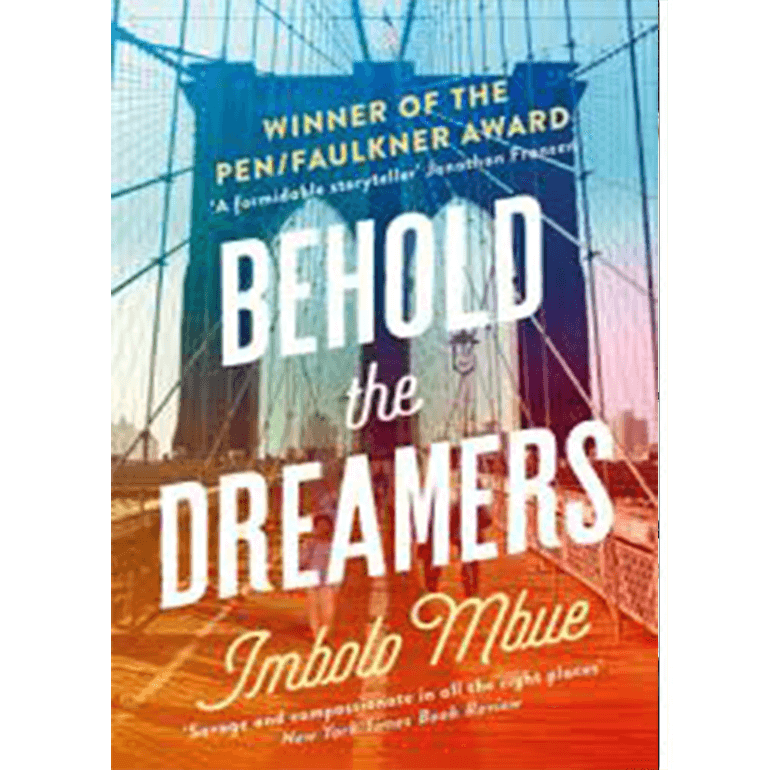
In Mbue’s novel, the immigrant family are discomfited by the transition to a new place, and find themselves changing in response, which was called “a fresh take on the immigrant experience”
Behold the Dreamers, seeks to explore topics regarding the complexity of American immigration policies and achievements, and overall, the pursuance of the American Dream. According to Mbue, the novel connects the characters’ experiences and feelings with those of her own: financial struggles, hopelessness, reevaluation of one’s goals, and struggles as an immigrant. She has stressed the importance of literature providing empathy, which she feels is lacked in immigration policies and overall politics.
Imbolo Mbue is a Cameroonian-American novelist and short-story writer based in New York City. She is known for her debut novel Behold the Dreamers, which has garnered her the PEN/Faulkner Award for Fiction and the Blue Metropolis Words to Change Award
10. The Tragedy of Being Born Beautiful –Cookey Iwuoha
An African perspective on timeless human experiences
Poetry Collection
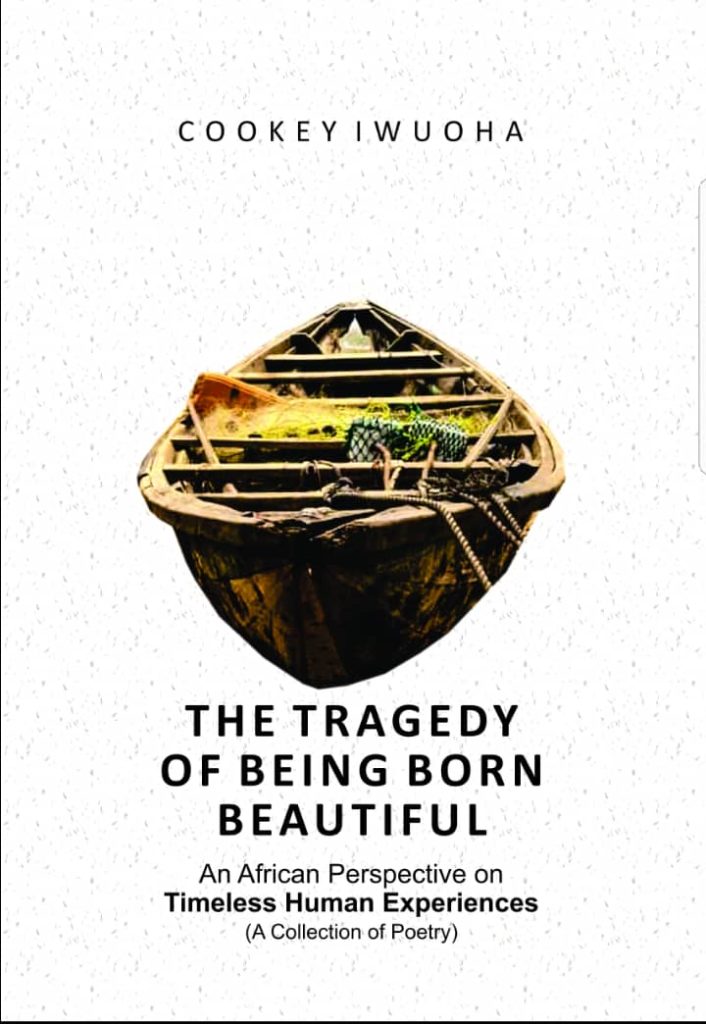
The Tragedy of Being Born Beautiful is a thought-provoking, multi-layered collection of poems divided into four parts, Dawn, Sunrise, Sunset and Twilight.
In Dawn, the poet concentrates on abstract human relationships while Sunrise takes aim at discouraging social injustice. Sunset addresses the intricacies of emotion and finally, Twilight reflects on the universal search for meaning, self, and identity.
Much like the seasons of man, the poems alternate between tender, angry, helpless and heartbreaking as they address age-old questions and emotions of life’s purpose, man’s inhumanity to man, despair of the soul, hopelessness, and the loss of self-purpose.
The poet known for his enigmatic style of replicating modernism on a papyrus, delved into the present- past to collect essential issues and dissect them on today’s society, infusing their influence in our psyche and then battles it to standstill on his readers mind.
“ Iwuoha’s mastery of language and imagery is brilliant and invites readers to spend time with each poem, reading and deciphering them more than once in order to delve deeper to peel away the layers and reveal the message held within. “
“As readers journey through the parts, questioning despair, hopelessness and disillusionment give way to hope, self-discovery and meaning.”
This collection is a keeper and the poems will stick with you long after you close the book. Every now and then, you’ll find yourself reaching for the book again.’’ Mary N Oluonye explicated in the foreword of the book which she penned.
In the collection a philosophical poem bearing the title of the book questioned the source of evil in man ,if man’s capability of exhibiting treachery to his fellow human an emanation of the innate will in him by the divine, or a resultant action of his experiences influenced by his environment.
In the poem The Tragedy of Being Born Beautiful he questioned
Are tragedies of the human
Transported by the Divine?
Or of emergencies responsible to actions of man?
Is crime solely an offspring of poverty
Driven by misery inspiring to balance inequality?
Or a force of human greed, feeding on disease of insatiety?
…Are we crooked innately?
By our creator designed gravely?
Or do we learn injustice
From our interaction with society?
Psychology says we become what we have done
And what has been done to us
Religion says we are rebellious in spirit, of our own making
Our maker innocent of the flaws in our design
Who is the culprit?
Who deformed our purity?
From innocent children
To querulous men
Awful and desperate maidens
To pretentious mothers.
Mothers of Lost Daughters a poetry about the dangers of being a child in North east of Nigeria
portrayed the agony of the incessant kidnapping of students in the north east of Nigeria hinged on rising cases of insecurity in the region starting from kidnapping of the students in Chibok which triggered the Bring Back our Girls campaign, which was followed years later with another Kidnap of teenagers in Dapchi. With about a thousand children kidnapped in the region in 9 years, the poet expended his energy on his poem Mothers of Lost Daughters below are some of his lines.
It’s horrific the price of ignorance
Vagabonds armed an ideology of haram
Illiteracy commanding authority, enchaining civility
Communities in a free society, entrapped in archaism
… No longer we mourn, with mothers of lost daughters
Clinging unto torn infant photographs of their lost loved ones
Anger, guilt as daily companions
Fathers, daily searching pages of newspapers
Hoping a reporter will remind the nation to seek answers
As they still await the return of their lost treasures
A traumatic reality, trivialized with politics
Our bond of diversity, crushed with tribal loyalty
Shame of a nation, to fail one is to fail all
Oh ! If only our generals are to stand trials
For a single child not returned to her block
Dignified empathy is what we lost in Chibok
His poem “Ogbanje “ talking about a people’s quest to spiritually negotiate the return of a spirit child is being applauded by the reviewer’s of the work, who are elated with the dimension he approached the work from and it’s amazing conclusion.
Ogbanje
To us you come with nothing
From us you leave with everything
Not that you have no mercy, child
Just that you are weak to calling powers of your allies
Spirit child, with a haunting smile
We await your return
To make you stay when you are reborn
For we know in truth, bright eyes don’t die
We gift you kolanuts
Forced inside your stiff clenched nose
A treat from us for those in the beyond
Repaying our debts to ensure a reward
This time they will urge your return
And you will come in haste
With all you have taken from us
For we have made complete your spiritual purchase
This time you will be born grateful
This time you shall stay
In our home you must find your place
And you shall be called beautiful
Engaging this subject that renowned Nigerian poets like Wole Soyinka and JP Clark had traversed at the peak of their careers on traditional belief of reincarnation and predestination is a commendable feat by the poet.
The diverse socio-political persuasions in his nation from religious crisis , failure of leadership, even police brutality that instigated the globally affirmed End SARS protests were all conveyed to his readers in poetry motion.
There were amazing abstract works in the collection like his attempt on deciphering the timelessness of time in which he ruminated in verses like the one captured below
Time in the moment, must be the only thing un-created
For every event seen or unseen is witnessed
By the moments that hosted its sequence
Time is a thing that nothing preceded
For it hosts everything
Other amazing works like The Call in the sound of Running waters, A waking Africanness, Chants of the Time Past and Present, Above in the Charging Clouds, The Act of Losing Belief and more will ensure that all wandering souls will on his poetic verses find a place to call home.
Cookey Iwuoha is a journalist, prose stylist and poet; dialogue facilitator, columnist and author of many published articles aimed at the development and decolonization of the mind of the African youth. This is his second collection of Poetry. His maiden literary work The Contents of Our Empty Graves a poetry collection on social vices, love and justice was published in 2011.
Most of this books can be found online and we wish you incredible memories this season-
TABA
